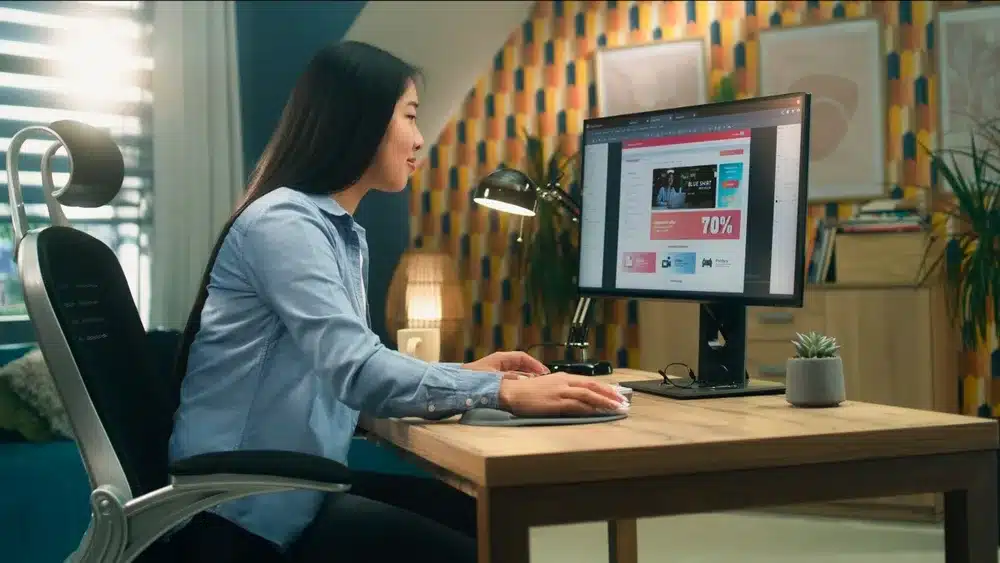Freelancing: A Journey of Challenges and Rewards
Anúncios
Freelancing is hard and the competition is fierce. As a self-employed person you work twice as hard but you receive half the salary. But despite these issues, many people choose freelancing as a job because of the flexibility and ability to work from home. In this article, we discuss what freelancers should and shouldn’t do. This will be useful for those considering or already doing this type of work.
1. Work Environment
If you decide to become an employee, you must ensure that there is a good workplace. If you don’t have enough space in your home for a separate office, set up a dedicated workspace, such as a desk in your bedroom or living room. If you have a fixed workplace, you look more professional and you can better separate your work and private life.
2. Define Borders
People often assume that freelancers have a lot of free time because they work from home. But being a freelancer requires more time and work than a typical office job. It is very important to let your family and friends know that you are working and should not be disturbed during these times. Set clear boundaries and let them know you can’t spontaneously travel or talk to them at work.
3. Self Discipline
As a freelancer, you may be working for a client or employer far away who gives you work data. When there isn’t much body control, you need self-discipline. Keep a regular schedule, get up at the same time every day, and stick to regular routines at work. Don’t let chores or other things take you away from freelancing when you should be focusing on freelancing.
4. Start it
When you first start working, it is important to be wary of online scams. When it comes to real opportunities, you rarely have to pay for training. Instead, check out respected freelance platforms like Odesk and Elancer, which offer a variety of freelance work with no upfront payment. Take the time to understand and choose a platform you can trust that matches your skills and interests.
5. Be Prepared to Start Small
Freelancing is a competitive industry and it can take time to familiarize yourself and gain experience. A willingness to start small and work at jobs that pay minimum wage initially is important. You can use these early jobs as a springboard to build your resume and get good reviews. Over time, you gain knowledge and credibility and you can gradually increase your salary and look for better paying jobs.
6. Continue Studying
If you want to get better at your job, you have to keep learning. Spend at least three hours a day improving yourself and your skills. There are plenty of online tools and tutorials that can help you learn new skills needed in the freelance market. Whether it’s search engine optimization (SEO), building a website, or data analytics, taking the time to educate yourself can lead to better, higher-paying freelance work.
7. Don’t Take in too Much
Once you become famous and have a good image as a freelancer, people may start looking to you for work. As tempting as it may be to say yes to any opportunity, it’s also important to be honest about your workload. Create a timeline so you can see how long each task takes and whether you can meet the deadline. If you already have a lot to do, it is better to reject more work than to lower its quality.
8. Choose the Right Job
As you become more and more productive, it’s important to be choosy about the tasks you take on. Consider how much each job will pay and how much time and work it will require. Don’t take on boring or low-paying jobs that won’t help you achieve your long-term goals. By choosing the right jobs, you can make the most money and be happy at work.
9. Keep in Contact with Other Freelancers
Building a network of other employees can help you find support, advice and motivation. Use Internet communities, forums or social media to connect with other professionals in your field. As an employee you can grow by talking about your experiences, talking about problems and learning each other’s skills. Having a support team can go a long way in getting you through the ups and downs of freelancing.
10. Communication
Communication is very important in the world of freelancers. If you get a job, discuss all the details of the project with your client or boss. Ask questions to make sure you fully understand their needs. Making sure everyone knows what to expect from the start will help you avoid confusion and get the results you want. In addition, keeping the lines of communication open with customers and informing them of significant changes or issues will help build trust and make your business relationship stronger.
Conclusion
Freelancing is a great option for people who want the freedom and independence of their work. Freelancing has its own set of issues, but following the do’s and don’ts in this article will increase your chances of success. Remember to maintain a focused work environment, set boundaries, be disciplined and always get better at your job. Following these tips will help you navigate the competitive freelance world and build a rewarding and fulfilling job.
FAQs
1. Can I become a successful freelancer without any experience?
While previous experience can be helpful, it’s not always a prerequisite for success as a freelancer. Starting small, taking on entry-level projects and gradually building your portfolio can lead to positive reviews and future opportunities. Focus on demonstrating your skills and delivering quality work to build your reputation as a reliable freelancer.
2. How are my freelance rates determined?
Determining freelance rates can be challenging. Consider factors such as your experience, the complexity of the project, the time required, and industry standards. Research similar freelance roles and their associated rates to get an idea of what the market is worth. Adjust your rates over time as you gain experience and expertise.
3. Is Freelancing a Steady Source of Income?
Freelance income can vary based on factors such as project availability, market demand and your reputation. It’s important to build a financial cushion to cover tough times or unexpected expenses. By diversifying your customer base and maintaining good relationships with existing customers, you can generate a steady stream of income.
4. How do you maintain work-life balance as a freelancer?
As a freelancer, it is important to maintain work-life balance. Set clear boundaries between work and personal life, create a schedule, and prioritize self-care. Avoid overtime or take on more projects than you can handle. Remember to take breaks, pursue your hobbies, and spend time with loved ones to avoid burnout.
5. Are there any tax consequences for freelancers?
Freelancers often have different tax obligations than traditional employees. It is recommended that you consult a tax professional or accountant to understand your specific tax responsibilities as a freelancer. They can guide you through proper record keeping, deductions, and necessary tax returns to ensure you comply with applicable tax laws.




